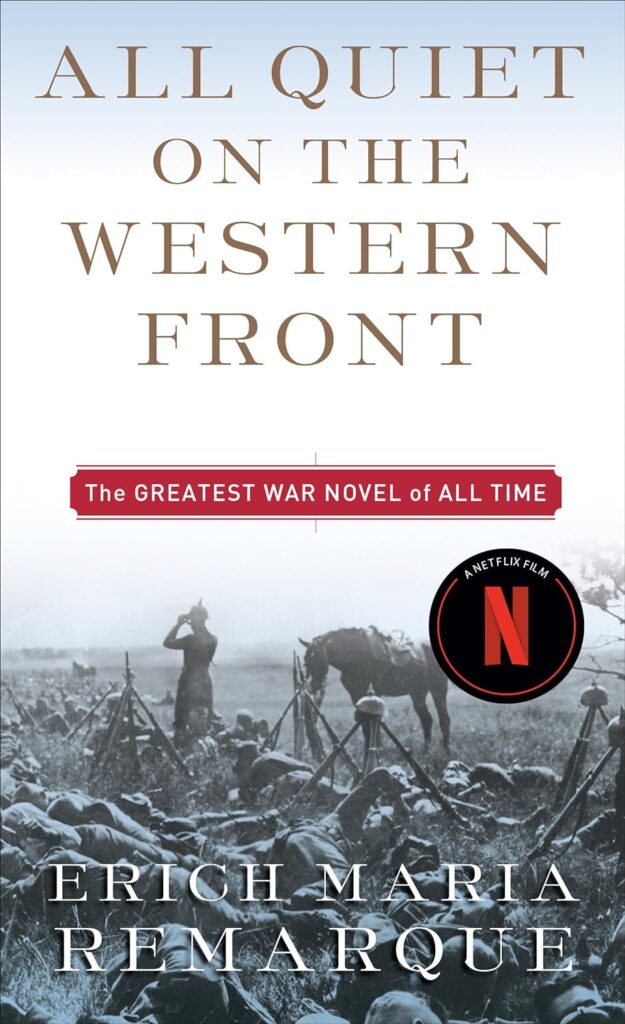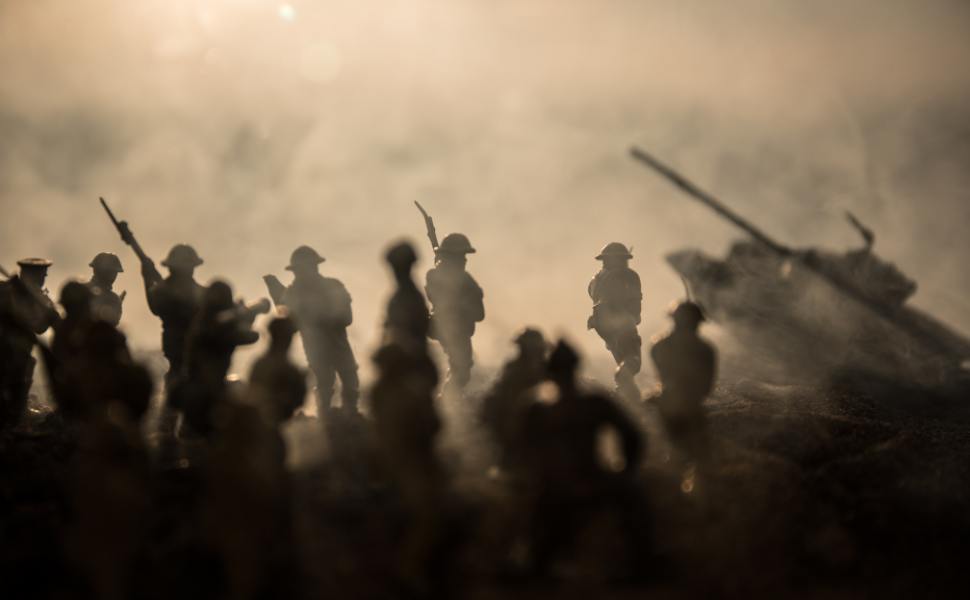There’s something haunting about All Quiet on the Western Front—something that sticks with you long after you’ve closed its pages. It’s not just another war novel, filled with battles and strategies. No, this book takes you right to the heart of what it means to be a soldier, a human, caught in the madness of war. Erich Maria Remarque’s tale is as much about the emotional and psychological toll as it is about the physical dangers of the battlefield.
When I first read All Quiet on the Western Front, I wasn’t prepared for how intensely it would make me feel. I thought I knew what war was, at least from the countless movies and stories we’ve all seen. But Remarque offers something different—an intimate, raw look into the lives of young soldiers, their fears, hopes, and the ways they cope with an unimaginable reality.
Let me walk you through it, step by step, and we’ll uncover the deep layers that make this novel so powerful.
1. The Journey of Paul Bäumer: Innocence Lost
The story follows Paul Bäumer, a young German soldier who narrates the story in a personal and reflective tone. When the book begins, Paul is still in his teens, just barely stepping into adulthood. Along with his classmates, he’s been swept up in the patriotic fervor of the time, encouraged by teachers and society to enlist in the army. It’s almost impossible to ignore how relevant this is to any generation—how easily the young are led into decisions that they might not fully understand. And that’s one of the first things that strikes you about the novel.
Paul enters the war with a sense of duty, pride even, but that quickly fades as he faces the brutal realities of life in the trenches. His transformation from a hopeful, naïve boy into a hardened, emotionally scarred soldier is the core of this story. And it’s not a grand, heroic transformation either—it’s painful. Watching Paul navigate the horrors of war, you begin to realize how deeply war strips people of their humanity.
What I found most compelling is how Remarque doesn’t glamorize any of this. The soldiers aren’t treated as heroes in the traditional sense. They’re simply surviving, day by day, clinging to whatever small bits of normalcy they can find. Paul’s voice becomes our guide, and through him, we feel the weight of what he’s lost—his innocence, his sense of self, and the connection to a world that now seems distant and irrelevant.

2. The Brutality of Trench Warfare: A Day-to-Day Struggle
I can’t talk about All Quiet on the Western Front without mentioning the sheer brutality of trench warfare. The book plunges you into the harsh reality of it all—the constant shelling, the mud, the rats, the hunger. You feel it. Every chapter takes you deeper into the front lines, and soon, you realize just how relentless it all is. There’s no respite, no real moment of peace for these soldiers.
What hit me hardest was how Remarque captures the emotional impact of this environment. It’s not just about dodging bullets and surviving explosions. There’s a slow mental erosion that happens when you’re constantly on edge, always waiting for the next attack, the next friend to fall. Paul and his comrades have to find ways to cope—whether it’s through dark humor, detachment, or simply focusing on the present moment. They know they can’t afford to think too much about the future because, in the chaos of war, the future is uncertain.
The way Remarque describes these everyday battles feels almost cinematic, but not in a flashy, action-packed way. It’s grim, raw, and uncomfortable, yet gripping at the same time. You feel the claustrophobia of the trenches, the hopelessness of being surrounded by death. It’s relentless, but that’s the point. War doesn’t give anyone a break, and All Quiet on the Western Front makes sure you understand that.
3. The Bonds Between Soldiers: Brotherhood in the Midst of Chaos
Despite all the horror, one of the most beautiful aspects of All Quiet on the Western Front is the bond between the soldiers. Paul’s relationships with his comrades—like Kat, Tjaden, Müller, and others—become a lifeline. It’s through these friendships that the soldiers find moments of relief, laughter, and, oddly enough, joy in the midst of destruction.
What stands out to me is how Remarque portrays this brotherhood not as something that overshadows the brutality but as something that coexists with it. The bond between Paul and his fellow soldiers is deep and real, forged in the fire of shared trauma. These men rely on each other not just for survival, but for emotional support. They understand one another in ways that outsiders—like civilians back home—simply can’t. And that’s a running theme throughout the novel: the growing divide between the soldiers at the front and those at home.
I remember reading the sections where Paul goes on leave and returns home. It’s almost painful to see him there, in a world that no longer makes sense to him. He feels disconnected from his family and the life he once knew because they can’t understand what he’s been through. That’s something that stuck with me—how war isolates people not just physically, but emotionally too. Even when Paul is away from the front lines, he can’t escape the war. It’s changed him too deeply.
4. The Pointlessness of War: A Generation Lost
If there’s one message that All Quiet on the Western Front drives home, it’s the sheer futility of war. By the end of the novel, you realize that all the loss, all the suffering, didn’t lead to anything meaningful. Paul’s generation is often referred to as the “lost generation,” and after reading this, you understand why. These young men were sent to fight a war they didn’t fully understand, only to come out the other side broken, if they came out at all.
The novel doesn’t offer any grand resolution or answers. There’s no glorious victory, no sense that these sacrifices were for some greater good. Instead, it leaves you with a feeling of emptiness—an understanding that war, in the end, consumes everything. It destroys lives, families, and futures. And for what? That’s the question Remarque leaves us with.
As I reached the end, I couldn’t help but reflect on how relevant this message still is today. We live in a world where conflict and war are still all too common, and All Quiet on the Western Front reminds us of the human cost behind those conflicts. It’s not just about soldiers on the battlefield; it’s about the ripple effect war has on generations, on societies, and on humanity as a whole.
5. Conclusion: What Does War Really Achieve?
All Quiet on the Western Front is more than just a war novel—it’s a poignant reflection on what it means to be human in the face of unimaginable circumstances. Through Paul’s eyes, we see the devastating effects of war on the individual and on society. We witness how it strips people of their humanity, forces them into survival mode, and leaves them grappling with the meaning of it all.
But at its core, the novel asks a question we still struggle with today: What does war really achieve? Is there ever a victory worth the cost of so many lives, so much suffering? All Quiet on the Western Front doesn’t offer easy answers, but it forces us to confront these difficult questions.
So, after everything Paul and his comrades go through, after all the loss and pain, I’m left wondering: How do we, as a society, move forward and prevent another “lost generation”? And is there ever truly peace after the damage has been done?




